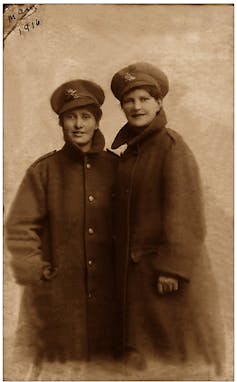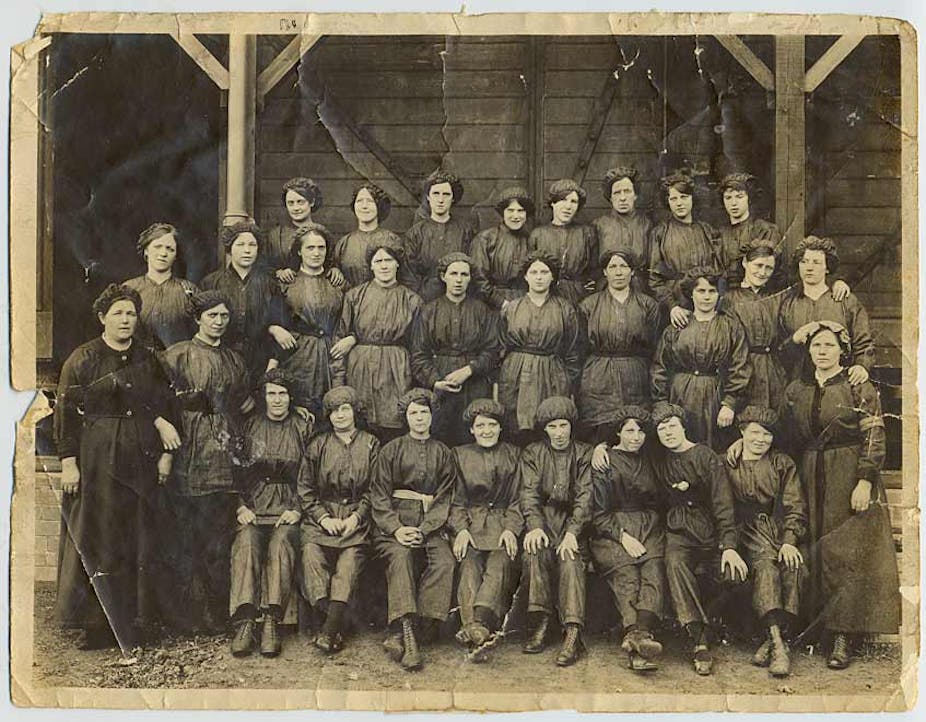It is often said that without World War I and its aftermath, the women of Britain would have waited even longer for the rights they have today. When men were drafted to fight, women filled the roles they left behind, as well as signing up for new jobs in munitions factories and the Women’s Land Army.
Those who had not previously recognised women’s worth and value pre-war finally began to realise that the country could not run without them. Take former prime minister Herbert Asquith for example, who was a significant obstacle to women’s enfranchisement before the war. In April 1917, when the war was still raging on, he told the House of Commons:
My opposition to woman suffrage has always been based, and based solely, on considerations of public expediency. I think that some years ago I ventured to use the expression, “Let the women work out their own salvation”. Well, sir, they have worked it out during this war. How could we have carried on the war without them?
The real extent of women’s contribution to the war effort was illustrated in a 1919 War Cabinet report, which found increases in women’s employment in almost every sector during the war. The only exception was domestic service, suggesting that a change in female work patterns had occurred – although in 1919 it was still the second highest employment choice for women, as it had been at the start of the war.
Broadly speaking, these national work patterns were reflected in Wales during the war years too. However, look post-1918 and it becomes apparent that the supposed positive effect the war had on getting women into work did not continue there.
Women at work
During the war, Welsh women took up jobs vacated by enlisted men as well as new roles in industry, including munitions production, to meet new demands. This was hazardous work, and women who undertook it often posed for photographs wearing borrowed military uniforms as if to reinforce their status. When accidents occurred, they were given military style funerals.

The work by Welsh women at factories like the Nobel TNT plant in Carmarthenshire, south west Wales were crucial to the war effort. A sign suspended over the main entrance there warned “Blondes need not apply” – a humorous reference to the serious effects of handling the hazardous chemicals which could turn blonde hair green. 300 tons of crystallised TNT and 200 tons of cordite paste were produced at this factory alone every week. Between July 1915 and May 1917, 1.14m shells of various sizes were filled there. And defective ammunition was also processed, with up to 50 tons of amatol recycled weekly.
After the war, most of these female workers had to give up their jobs. Some were no longer needed, others gave way to men coming home from war as Britain returned to normality. Letters of recommendation issued to those released from their wartime jobs often referred to supervisory positions, indicative of the expansion of women’s roles.
However, it was far from business as usual for women in Wales, or Britain for that matter. Many roles were closed to women after the war and others often included a marriage bar. UK-wide census records indicate that a longer term view of women’s employment shows an overall decline despite the dramatic rise during the war itself.
Between 1911 and 1921, paid employment of women declined across Britain, but by 1931 the trend had begun to reverse. For women in Wales the situation was far worse, however. Employment of women in Wales fell more sharply than in Britain as a whole and continued to fall for another decade (to 1931), even when things improved elsewhere. By 1951, there had been a modest recovery in the Welsh employment levels, but female employment in Wales was still far behind the rest of the country.
The Welsh statistics can partly be explained by a decline in industry (that the war had temporarily reversed) and also increased mechanisation in agriculture. With post-war employment opportunities limited, many women migrated from Wales – itself devastating for local communities – to seek work. They went to the home counties where they were in particular demand as domestic servants in the big houses. Welsh women were regarded as honest (probably a consequence of the chapel tradition) and were also relatively cheaper to employ. To cater to this demand, the ministry of labour set up “home training centres”, mostly in the valley towns of south Wales. By 1931 at least 10,000 young women had left Wales to work in domestic service in London alone.
It can’t be denied that the war did bring about significant changes for women across Britain. However, for the women of Wales, the wartime gains in employment were merely on loan, and it would take decades for them to be recovered.
Listen to The Anthill podcast on remembering World War I here, or subscribe wherever you get your podcasts.

